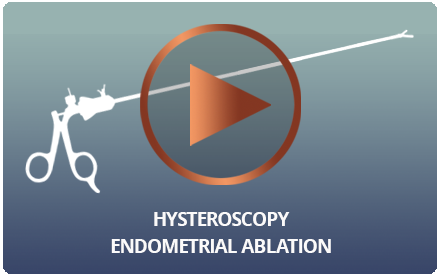Endometriosis
What is Endometriosis?
The uterus comprises three linings of tissue and muscle; the endometrium, myometrium, and perimetrium. Endometriosis is a disorder in which the innermost layer of the three linings—the endometrium—grows outside the womb. This condition may result in adhesions (internal scar tissue) that can lead to the dislocation of internal organs. While the condition is typically painful, especially during menstruation, there are women who display no symptoms at all – or others who suffer continuous discomfort.
Signs and Symptoms of Endometriosis
Like most health problems, the symptoms of endometriosis differ between women. It is important to note that the acuteness of the discomfort is not always an indicator of the severity of the problem. The symptoms are largely determined by the reach and location of the endometrial tissue and affected organs. Therefore, Dr G recommends a check-up if you have some of the symptoms below even if your pain isn’t incapacitating.
- Menstrual pain (dysmenorrhoea)
- Painful sexual intercourse (dyspareunia)
- Pelvic and abdominal pain (unrelated to menstruation)
- Abnormal period flow (which encompasses clotting and bleeding that is heavy, prolonged, or irregular)
- Abnormal bowel functioning (which encompasses painful bowel movements, diarrhoea, constipation, and bleeding)
- Fertility problems
- Pain in your lower back, legs and/or thighs
- Discomfort while urinating and/or the need to urinate frequently
- Premenstrual syndrome
Endometriosis may also result in emotional upheaval. With the expectation of recurrent discomfort looming over you each month, it is both understandable and natural if you feel anxious, stressed out, or depressed.
Cause of Endometriosis
Science hasn’t discovered the exact cause of endometriosis as yet. It is likely to be impacted by multiple factors. These include genetic dispositions, impaired immune systems, hormonal disturbances, and surgical complications.
Endometriosis isn’t rare or obscure, but a fairly common gynaecological problem affecting women of childbearing age. If you think you may have the condition, make an appointment with Dr G. With his experience and skill, he will be able to diagnose the problem, discuss the different options you have based on the nature and severity of your complaints, and treat endometriosis using the latest technology that medical science has to offer.
What can you do?
Endometriosis is not something that can be ignored and it is imperative that your condition is diagnosed and treated correctly. Fortunately, Dr G has several options to offer you and, with a decade of experience, specialised knowledge, and expertise to his name, can easily identify the ones most suited for your unique case.
Diagnostic Tests for Endometriosis
Dr G will discuss both your family and your personal medical history in detail at the time of your consultation. If your symptoms, the results of a pelvic exam, and your risk factors suggest that you have endometriosis, you may be asked to undergo a diagnostic test for confirmation. Common tests include:
- Laparoscopy – a procedure by which the interior of your uterus is examined using a tiny specialised camera
- Ultrasound – a medical imaging technique that harnesses sound waves to ‘see’ your uterus
You may also be asked to do a colonoscopy – a procedure by which your bowel is examined using a colonoscope — a camera enclosed within a thin flexible tube. This is only performed if Dr G suspects that the endometriosis could be impacting your bowel.
Treatment Options for Endometriosis
Each individual case is unique. Dr G. takes several factors into account when treating your endometriosis including your age, your expectations and requirements, the severity of your symptoms and the spread of the unwanted tissue. While there is no known cure, your symptoms can be mitigated through regular medical follow-ups, medicines, lifestyle changes and, if necessary, surgery. Since endometriosis is suppressed during pregnancy, having a baby may help you temporarily. Do note that pregnancy won’t cure you of endometriosis – symptoms usually recur in time. Dr G offers the following treatment options.
Drug Therapy
Drugs used to treat endometriosis include:
- Birth control pills
- Anti-inflammatory drugs
- Painkillers
- Hormonal drugs
Each option has its own merits and drawbacks. Dr G can discuss them with you in detail to find the drug most suited to your physique, needs and lifestyle.
Endometriosis Surgery
The surgical procedures used to treat endometriosis include:
- Laparoscopic surgery – a minimally invasive surgical technique that will allow Dr G to remove the endometriosis tissue, ovarian cysts and adhesions through small incisions made on your belly. This may relieve you of pain and increase your chances of conceiving
- Laparotomy – a process by which unwanted tissue or cysts are removed, used only in cases where laparoscopic surgery is not a viable option
- Bowel resection – a medical procedure used in instances where the bowel is severely affected by endometriosis. The surgery is performed by a team comprising multiple medical specialists (colorectal surgeons and urologists) whose expertise will be used for different aspects of your case.
- Laparoscopic Hysterectomy – a key hole procedure that involves removing the uterus. It is ideal if the quality of your life is seriously affected by your condition, if you have no desire to conceive in the future, or if other treatment options have failed.

